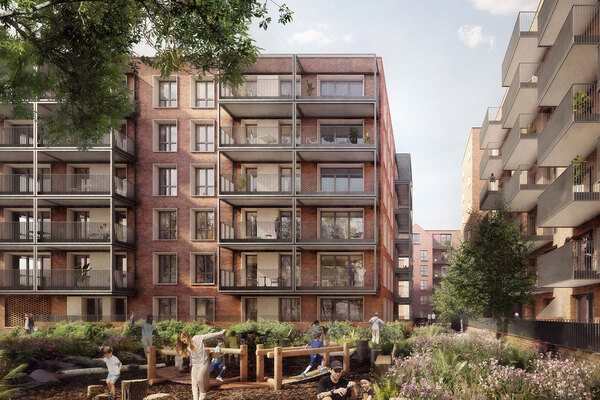Is diversification delivering?
Sharon Thandi, senior associate at Devonshires, asks whether the financial benefits of diversified activities for housing associations outweigh the risks
Many charitable housing associations have looked to diversify their activities to meet the ever-increasing costs the sector is facing.
The latest Sector Risk Profile 2023 sets out: “Diversification into non-traditional business streams can allow providers to increase their turnover and supplement their rental income and grant funding, enabling them to invest returns back into their core activities.”
However, the Sector Risk Profile warns that the same diversified activities introduce additional risks that could potentially put social housing activities at risk. Near-misses in the sector have shown how real this risk can be.
The primary objective of charitable housing associations is to provide affordable housing and support for those in need. Recent developments in the sector, as well as high-profile failures in tenant services and the changing consumer regulation framework, mean providers have been given a clear message to focus on their core mission of providing safe and good-quality homes and services to residents.
This has prompted a review of the merits of their diversified activities and whether these remain fit for the future. Some are turning away from the model of diversified activity cross-subsidy to meet this challenge. Commentary suggests that, for some, diversified activities may cause distraction from their core purpose.
Recent headlines from L&Q and Clarion show both organisations are considering radical changes. L&Q announced the sale of its strategic land business and Clarion announced restructuring proposals to put more resources in key priority areas.
“Housing associations face growing public scrutiny, especially regarding stock condition and repair services. Providers may be criticised for prioritising diversified activities over investing in core social housing assets and services”
So, what is the way forward for housing associations when appraising their diversification strategies?
The primary consideration is whether diversified activities align with the association’s charitable mission. Charitable housing associations exist to serve the public by providing housing and related services to those in need.
When assessing diversified activities, associations should ask: Do these activities support or detract from our core mission? Are they enhancing our ability to deliver affordable housing and support services? Does the financial reward justify the risk?
Reputational risk is closely tied to mission alignment. Housing associations face growing public scrutiny, especially regarding stock condition and repair services. Providers may be criticised for prioritising diversified activities over investing in core social housing assets and services.
It’s important to consider whether these diversified activities compromise the provider’s reputation and status, and whether reputational risks could potentially hinder their ability to discontinue these activities if necessary.
Diversified activities should contribute positively to the organisation’s financial health without exposing it to undue risk. Loss-making activities should not be supported by charitable resources. It is also a regulatory requirement that social housing assets are not put at undue risk, and the reality of recourse to assets should be carefully tested.
While diversified activities may be carried out in a separate legal entity, this separation may be superficial. It may be difficult to demonstrate clear separation between a charitable parent and its commercial subsidiary where the subsidiary remains reliant on the parent for staffing, on-lending and funding and has little to no independence on its board. Often, commercial subsidiaries have limited reserves, as profits are gift-aided to the charitable parent and so the subsidiary remains reliant on the parent for funding.
Cross-default provisions in funding agreements, employment arrangements and wider reputational issues (eg relationships with key stakeholders) will need to be considered in realistically testing whether a subsidiary could be allowed to fail.
“Never before have housing providers been under a stronger spotlight to account to their residents and key stakeholders how they are utilising their assets effectively and making decisions about trade-offs”
Strong governance is critical to managing diversified activities effectively and it is essential that the housing association parent is able to exercise appropriate oversight of diversified activities, whether carried out in subsidiaries or joint ventures (or by the provider itself). There should be clear reporting procedures and escalation parameters to ensure risks are brought to the board’s attention at an early enough stage.
Linked to core mission, providers should consider the strategic fit of diversified activities within the organisation’s broader organisational strategy to ensure that such activities are being delivered in a tax-efficient manner, which, where supported by investment from the housing association, provides an optimal use of the provider’s assets. The board should review the return on such investments, and their strategic fit, at least annually.
Never before have housing providers been under a stronger spotlight to account to their residents and key stakeholders (including the regulator) how they are utilising their assets effectively and making decisions about trade-offs. Reviewing and potentially moving away from diversified activities is a significant decision that requires careful consideration and strategic planning.
Sharon Thandi, senior associate, Devonshires
Sign up for our daily newsletter
Already have an account? Click here to manage your newsletters













